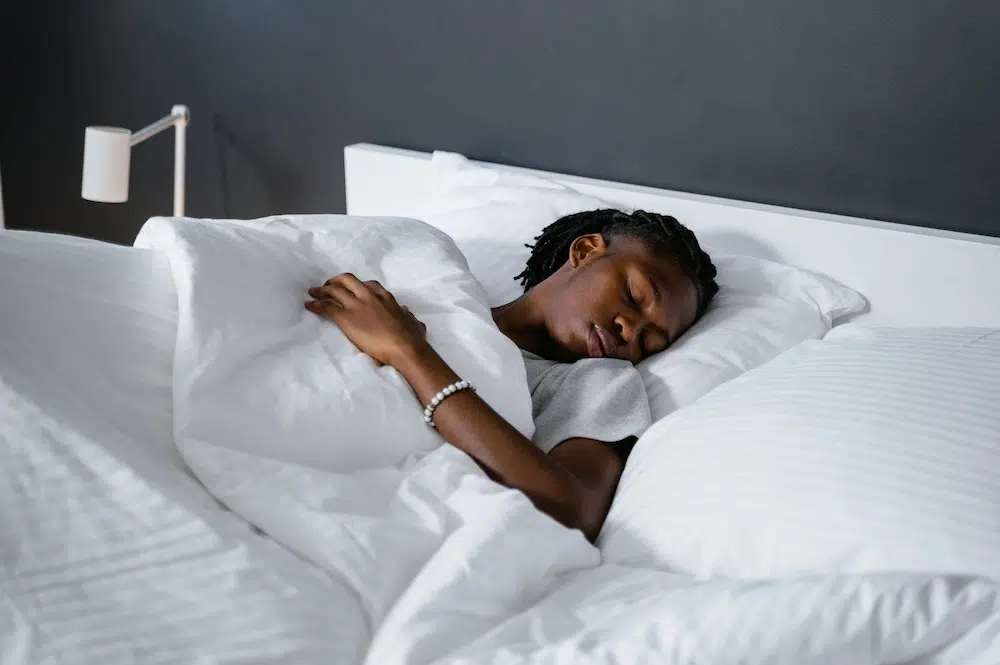
How Much Sleep Do You Need?
Sleep is like magic. We close our eyes every night, and our body gets to work. It heals us, gives us energy, and makes us feel good. But here’s a big question: how much sleep do you need? Is it 5 hours?
8 hours? More? Everyone seems to have a different answer. But don’t worry. We’re here to help you find out. By the end of this article, you’ll have a clear idea.
Get ready to dive into the world of sleep and discover the perfect amount for you!
Sleep Needs By Age
Infants And Newborns
Babies love to sleep! Typically, they need around 14 to 17 hours each day. This isn’t just at night. They take naps during the day, too. This much sleep helps their little bodies and brains grow well and stay healthy.
Children And Adolescents
For kids aged 3 to 5, 10 to 13 hours of sleep works best. As they go to school and are between 6 to 13 years old, 9 to 11 hours suit them.
When they hit their teen years, from 14 to 17, they require 8 to 10 hours. This sleep supports their learning and mood.
Adults (18-64)
The adult sleep cycle is different from the infant’s or children’s. Aim for 7 to 9 hours nightly if you’re an adult between 18 and 64. Sleep keeps your mind sharp and body ready for daily tasks. With enough rest, you can think better, work efficiently, and enjoy your day more.
Older Adults (65+)
For those aged 65 or older, sleep remains essential. Aiming for 7 to 8 hours each night is ideal. Consistent good sleep is crucial as we age to maintain mental clarity, overall health, and energy.
It supports daily activities and promotes a happier, more active lifestyle in golden years.
Individual Variations
People are unique. Some thrive on 6 hours, while others need 10. It’s key to pay attention to how you feel. Suppose you’re energetic when you wake up. Adjust your sleep time if not.
Factors Influencing Sleep Duration
Lifestyle Choices
Our daily habits play a role in our sleep. Drinking caffeine, like coffee, late in the day or working out too close to bedtime can keep us awake.
Developing routines that prepare our body and mind for a peaceful night’s rest is beneficial.
Stress And Anxiety
When we feel stressed or anxious, it becomes tough to sleep well. The mind keeps thinking about problems, making it hard to relax. But there’s good news! Deep breathing or listening to soft music can help calm our thoughts and improve sleep.
Medical Conditions
The medicines we take or some health problems can disrupt sleep. It’s wise to see a doctor if someone is tired or struggling to drift off. They can offer advice and solutions to ensure better sleep.
Genetics And Age
Everyone is different. As we grow older, our sleep patterns can change. While kids often sleep longer, many older folks need less rest. Plus, some families naturally have early birds or night owls due to genes.
Technology And Screens
Gadgets like phones and computers can impact our sleep. Their screens shine bright, tricking our brains into thinking it’s daytime. Switching off these devices a while before heading to bed is a good idea for the best sleep.
How Much Sleep Do You Really Need?
Quality Vs. Quantity
Getting good sleep is like filling a bucket with water. It’s not just about how much you get, but how clear and clean it is. You will still feel tired even if you sleep for many hours if it’s not deep.
It’s better to aim for deep, peaceful sleep.
Listening To Your Body
We are all different. Some of us feel great with 6 hours of sleep, while others need 9. Your body knows best. That’s a sign you slept just right if you wake up feeling happy and ready for the day.
Always listen to how you feel.
Sleep Tracking Tools
There are cool tools and apps today that can help. They watch how you sleep and give you details. They can tell you if you slept deeply or moved a lot.
Using these tools, you can understand and improve your sleep more and more.
Consistency Is Key
Imagine doing the same fun activity at the same time every day. Your body loves that with sleep, too! When you sleep and wake up at the same time daily, your body gets used to it. And guess what?
You’ll likely sleep better and wake up feeling amazing!
Tips For Better Sleep
Establishing A Bedtime Routine
Think of bedtime like a cozy story. Doing things in order helps. Brush your teeth first, read a short story, and finally close your eyes.
When you follow steps like these every night, your body starts to think, “Ah! It’s time to rest now.”
Creating A Sleep-Conducive Environment
Imagine your room as a dreamy castle. Use soft, gentle lights. Lay on fluffy pillows. Or have quiet sounds, like a fan. Keep the room cool and make it dark, like nighttime in a forest. Such a room whispers, “Sleep well here.”
Managing Stress And Anxiety
Sometimes, our minds are like busy beehives. To sleep, we need calm. Taking deep breaths or thinking of fun times helps. Talking to friends about worries is good, too. When our minds are calm, they’re like quiet ponds, ready for sweet dreams.
Limiting Caffeine And Alcohol
Drinks like soda or coffee make us buzz like fireflies. They’re fun but not near bedtime. Having them early and drinking water later is wise. This way, your body feels right by night, ready to drift into dreamland.
Exercising For Better Sleep
Being active is like playing a fun game. Afterwards, your body feels nicely tired. Whether running, dancing, or even hopping, it helps us sleep. But remember to play these games before bedtime so you’re set to sleep by night.
FAQs
1. What Factors Determine Your Ideal Sleep Duration?
Many things shape your best sleep time. Age, daily activities, health, and stress are big ones. Everyone’s different, so seeing what makes you feel the most rested and happy in the morning is good.
2. Can You Measure Sleep Quality And Quantity?
Yes, you can! Some special tools and apps track your sleep. They show how long and how deep you sleep. Using them, you can learn and make your sleep even better. It’s like having a sleep helper with you.
Conclusion
So, how much sleep do you need? Every person’s need varies. Children, adults, and seniors all have their unique sleep patterns. It’s not just about counting hours but also ensuring they are restful.
The key is to listen to your body and adjust accordingly. Tools and routines can guide you, but your feelings are the best indicator. Find that balance, and you’ll enjoy the magic of waking up refreshed.
Aiming for a bright, energized morning is the best way to know you’re getting the sleep you need. Sleep tight!



